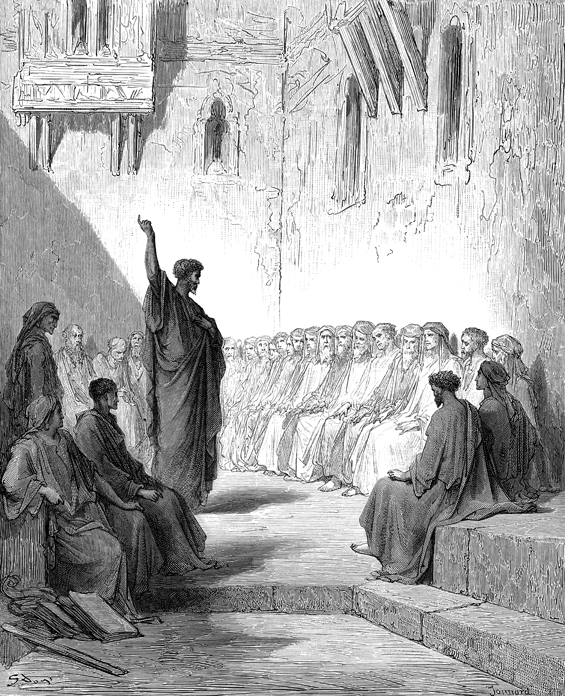
After costly imitation of Christ, our next quality of the “apostolic mindset” to discuss is utter reliance of the Holy Spirit (CLICK HERE to read the rest of the posts in this series).
In Acts 2, at the first ever Christian Pentecost, the community is gathered in the upper room of the Last Supper, wherein a sound comes from Heaven like a mighty wind, filling the house, the Holy Spirit coming to the faithful as tongues of fire. The Holy Spirit serving as the founding gift of the New Covenant and the soul that animates the body of the Christian community, as Paul will speak of it. The Holy Spirit hereafter directs the missionary efforts of the Church, guiding her leadership into truth, sanctifying her life through the sacraments and so forth.
This commotion draws the attention of the Jews in Jerusalem for Pentecost, a pilgrimage feast, as they go to see this sound, only to be left bewildered at the apostles speaking in tongues. Shocking because they are Galileans, so how can they be speaking in my own language? And so the Jews here are left amazed – what does this all mean?!?
Peter rises up and gives his first sermon in 2:14-41. As he proclaims, we have entered the new era of the Holy Spirit, which was to be accompanied by signs and wonders, as prophesied by Joel. Joel 2:28-32 envisioning an outpouring of the Spirit upon men, women, young, old, slaves, free, signs and wonders abounding as salvation comes by the name of the Lord. Peter linking the wonders and signs prophesied by Joel with Jesus’ miracles, identifying Him as the saving Lord, Whose name is invoked in baptism. Pentecost is thus the arrival of the Messianic age.
This Messianic age of the Holy Spirit is confirmed all throughout Acts, the Holy Spirit being a constant reference point for the Apostles. It is the Holy Spirit, for example, who confirms St. Peter in the Church’s mission to the Gentiles, the “unclean” people of the Old Testament, from whom the Jews had previously had such strict separation. Yet as St. Peter says in Acts 10:34-35, in the house of the Gentile Centurion Cornelius, “Truly I perceive that God shows no partiality, but in every nation any one who fears him and does what is right is acceptable to him.” And as Peter preaches to Cornelius and his household, the Holy Spirit falls upon all in the house who hear the word, leaving the circumcised believers who’d come with Peter amazed since the gift of the Holy Spirit is poured on these Gentiles, as had previously happened to the Jewish disciples at Pentecost. We have here a “Pentecost of the Gentiles”, if you will. To which Peter declares: can anybody forbid baptizing these people whom the Holy Spirit has come upon, just as he did us, Peter thus baptizing Cornelius and his household. And to those who quibble with Peter in having gone to the uncircumcised and to have eaten with them, Peter’s defense is simple enough in Acts 11:1-18: if the Holy Spirit makes no distinction, coming upon those uncircumcised men as he did us…then who am I to make distinction? The work of the apostles is driven by utter reliance on the Holy Spirit!

